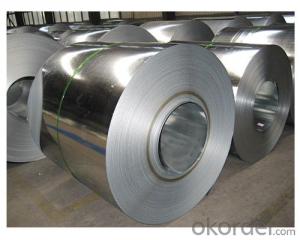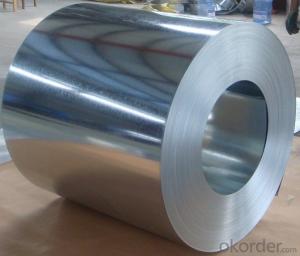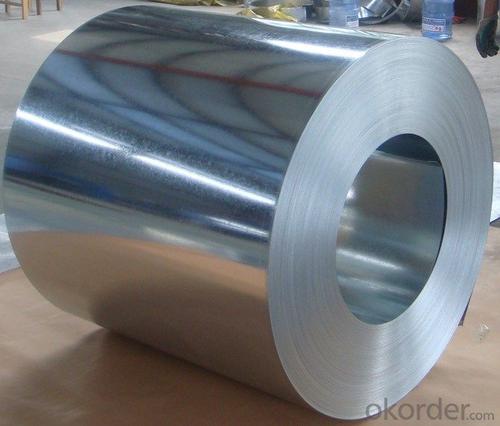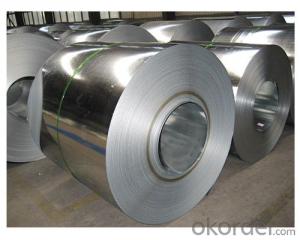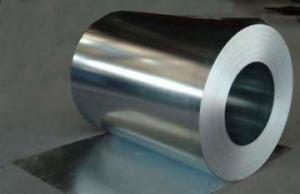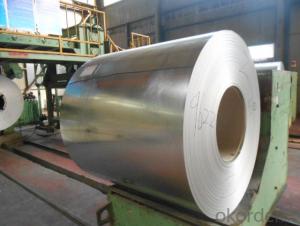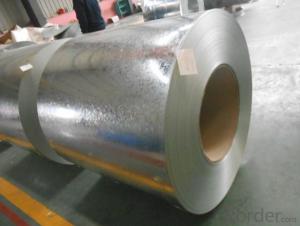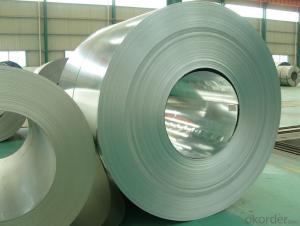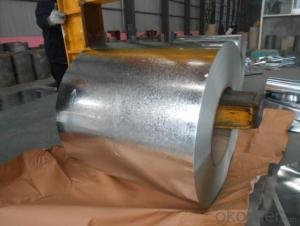Galvanized Steel Sheet in Ciols with Prime Quality Best Seller
- Loading Port:
- Shanghai
- Payment Terms:
- TT OR LC
- Min Order Qty:
- 100 m.t.
- Supply Capability:
- 10000 m.t./month
OKorder Service Pledge
OKorder Financial Service
You Might Also Like
1.Structure of Galvanized Steel Coil Description:
Hot-dip galvanized steel coils are available with a pure zinc coating through the hot-dip galvanizing process. It offers the economy, strength and formability of steel combined with the corrosion resistance of zinc.
2.Main Features of the Galvanized Steel Coil:
• Good formability • Rust- proof ability • Good visual effect • Base material for countless outdoor and industrial applications
Zinc coating :40-180g( as required)
Coil id:508mm/610mm
Coil weight: 4-10 MT(as required)
Surface: regular/mini/zero spangle, chromated, skin pass, dry etc.
5.FAQ of Galvanized Steel Coil
We have organized several common questions for our clients,may help you sincerely:
1.How to guarantee the quality of the products?
We have established the international advanced quality management system,every link from raw material to final product we have strict quality test;We resolutely put an end to unqualified products flowing into the market. At the same time, we will provide necessary follow-up service assurance.
• High corrosion resistance
• High strength
3.Galvanized Steel Coil Images
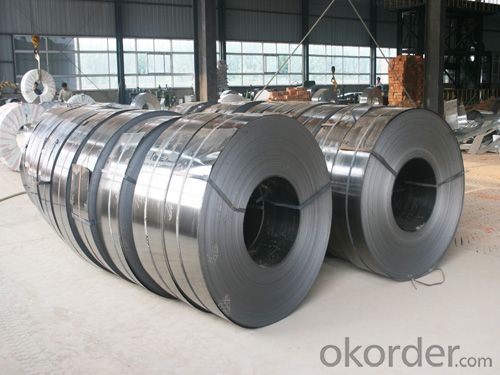
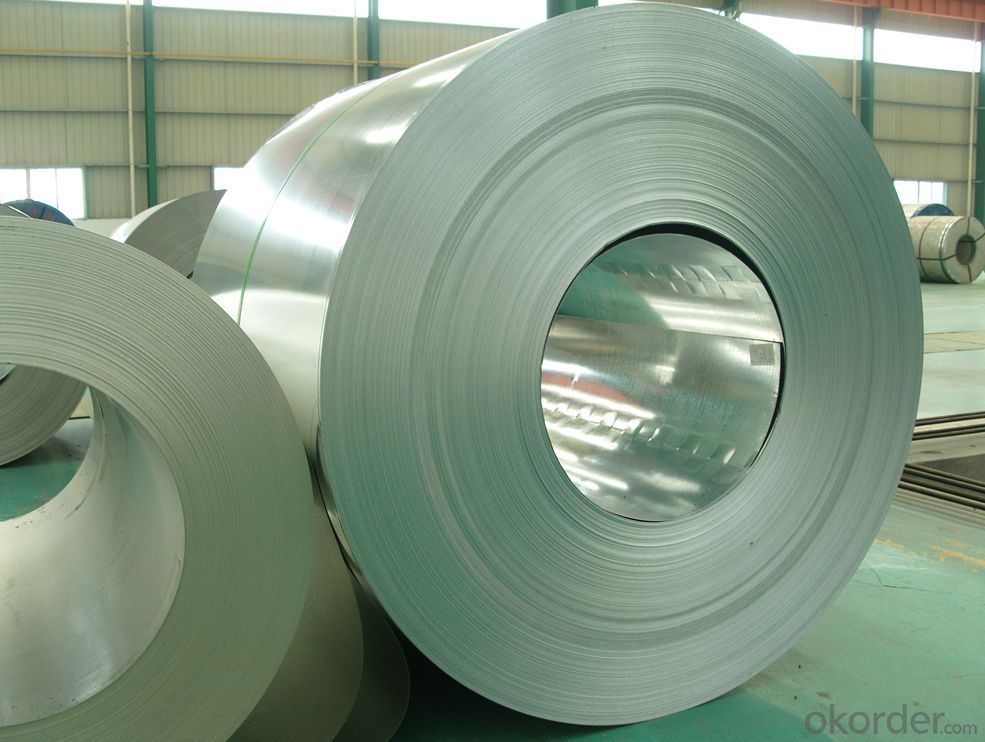
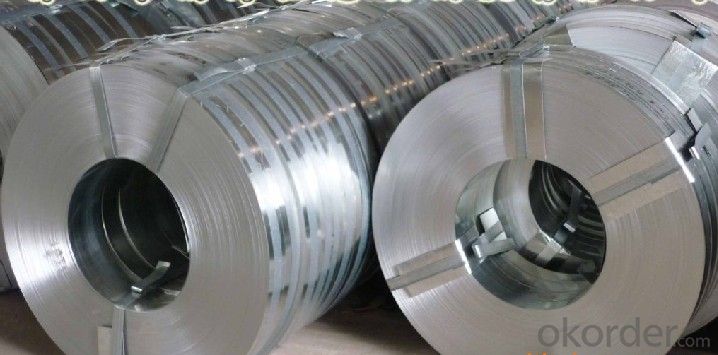
4.Galvanized Steel Coil Specification
Width:914-1250mm(914mm, 1215mm,1250mm,1000mm the most common) Grade : SGCD,SGCH, Q195,DX51D
- Q: How do steel coils contribute to acoustic performance in buildings?
- Steel coils can contribute to acoustic performance in buildings by providing sound insulation and reducing noise transmission. When installed as part of a building's structure, steel coils can help absorb and dampen sound vibrations, preventing them from traveling through walls and floors. This can result in a quieter and more comfortable indoor environment, minimizing disruptions and enhancing overall acoustic quality within the building.
- Q: What are the main factors that affect the corrosion resistance of steel coils?
- The main factors that affect the corrosion resistance of steel coils include the composition of the steel, the presence of impurities, the type and thickness of the protective coating, exposure to corrosive environments (such as moisture, chemicals, and salt), and the presence of physical damage or scratches on the surface of the coils.
- Q: I wanna strip down my bike and take off all the paint... im thinking of leaving it just the steal color... Do i need to put anythinng on the steel to coat it or can i just leave it like that... Will it rust or anything?
- There is another thing you can do to inhibit corrosion on bare metal surfaces. Use a good quality automotive wax. Apply it with diligence, and keep the bike in the garage when you're not using it so it stays dry. Touch up the wax job every now and then to maintain the protective finnish.
- Q: i wanna know all the similarities between iron and steel
- Iron is raw from iron ore, steel has other metals added such as alloys or copper to give tesil strength and flexibility
- Q: and also what makes different hardness of stainless steel?
- Stainless steel is formed due to other metals present, that are resistant to corrosion. The main one is chromium, which is an excellent protector. Hardness in steel is due to other metals, as well as the carbon content. Chromium, vanadium and tungsten make steel extraordinarily hard. High carbon content makes steel hard but brittle.
- Q: Can steel coils be used in the production of electrical components?
- Indeed, the utilization of steel coils is possible in the manufacturing of electrical components. It is common practice to employ steel coils as magnetic cores in transformers and inductors. The magnetic properties inherent in steel render it an optimal substance for bolstering the efficacy and effectiveness of electrical components. Wrapping the coils around the steel core serves to concentrate and direct the magnetic field, guaranteeing a seamless and efficient operation. Additionally, steel coils find application in the creation of solenoids, motors, generators, and other electrical contrivances wherein magnetic fields are indispensable for proper functioning. On the whole, steel coils assume a pivotal role in the production of diverse electrical components, thereby contributing to their trustworthy and high-performance operation.
- Q: How are steel coils used in the production of electronic devices?
- Steel coils are used in the production of electronic devices for various purposes, such as creating magnetic fields, providing structural support, and acting as conductors in transformers and inductors. These coils are typically wound around a core material, such as ferrite or laminated iron, to enhance their magnetic properties and improve their performance in electronic circuits.
- Q: I have the game of the year edition for fallout 3 but there's no mission or quest saying it's called broken steel so what is it actually called and where is it? Please describe the quest in case I mightve already done it without even knowing.
- Broken Steel fixes the original ending of the game so that you can continue past the end and continue exploring. The Broken Steel missions also take place after the original ending of the game. One way you can tell if Broken Steel is working though is if you are finding enemies added with Broken Steel (Super Mutant Overlords, Hellfire Enclave Troops, and so on), and if you can level up past level 20 and get new perks added between 20 and 30. You can even see all of these new perks any time you level up, so next time you level up, scroll down and see if there are new perks below the level 20 perks. If there are, then Broken Steel is working properly.
- Q: So carbon is gas that brakes down to hydrogen and helium before going in...And steel can go a little farther towards sun before evaporating.. 200 degrees closer at leastso steel is full of a heavier gas bomb in my hypothesis and needs to be broken up outside stars(broken down)Is steel capable of going into sun with an element thats wrong wayLike iron has no air to boil outAnd steel goes just as far with carbon in it..Other words can u answer me with..Carbon is already IN the sun and is capable of braking down Carbon INSIDE the star/sunOnly way I see steel boiling is inside and it releases carbon gas at once..carbon bomb
- Carbon NEVER breaksdown into hydrogen and helium. Steel is an alloy of iron that contains carbon. Send either into the sun and they go from being a solid to a liquid to a gas to a plasma as the temperature increases on its approach but neither breaksdown into something else. Carbon as a solid or a plasma is still carbon and the same is true for iron. There are small amounts of most elements in the sun but it is mostly hydrogen.
- Q: What are the different cutting methods for steel coils?
- There are several different cutting methods that can be used for steel coils, depending on the specific requirements and desired outcome. Some of the most common cutting methods for steel coils include: 1. Slitting: Slitting is a method that involves cutting the steel coil into narrower strips. This is typically done using a slitting machine that features multiple circular blades. The machine will unwind the coil and pass it through the blades, which will cut it into the desired width. Slitting is commonly used for applications that require narrower strips of steel, such as in the manufacturing of automotive parts or electrical appliances. 2. Shearing: Shearing is a cutting method that involves using a shear machine to cut through the steel coil. The machine will have a straight blade that is pressed against the coil, effectively cutting it into desired lengths or shapes. Shearing is often used for applications that require precise cuts or when the steel coil needs to be cut into specific sizes. 3. Laser cutting: Laser cutting is a more advanced cutting method that uses a high-powered laser to cut through the steel coil. The laser beam is directed onto the coil, melting or vaporizing the metal and creating a clean and accurate cut. Laser cutting is highly precise and can be used to cut intricate designs or patterns into the steel coil. It is often used in industries such as aerospace, automotive, and electronics. 4. Plasma cutting: Plasma cutting is a cutting method that uses a high-velocity jet of ionized gas to melt and remove the metal from the steel coil. The gas is usually a mixture of oxygen and an inert gas, such as nitrogen or argon. Plasma cutting is known for its speed and versatility, as it can cut through a variety of metals, including steel. It is often used in industries that require fast and efficient cutting, such as shipbuilding or construction. These are just a few of the different cutting methods that can be used for steel coils. The choice of method will depend on factors such as the desired outcome, the thickness of the steel coil, and the specific requirements of the application. It is important to consult with a professional or specialist to determine the most suitable cutting method for your specific needs.
Send your message to us
Galvanized Steel Sheet in Ciols with Prime Quality Best Seller
- Loading Port:
- Shanghai
- Payment Terms:
- TT OR LC
- Min Order Qty:
- 100 m.t.
- Supply Capability:
- 10000 m.t./month
OKorder Service Pledge
OKorder Financial Service
Similar products
Hot products
Hot Searches
Related keywords
